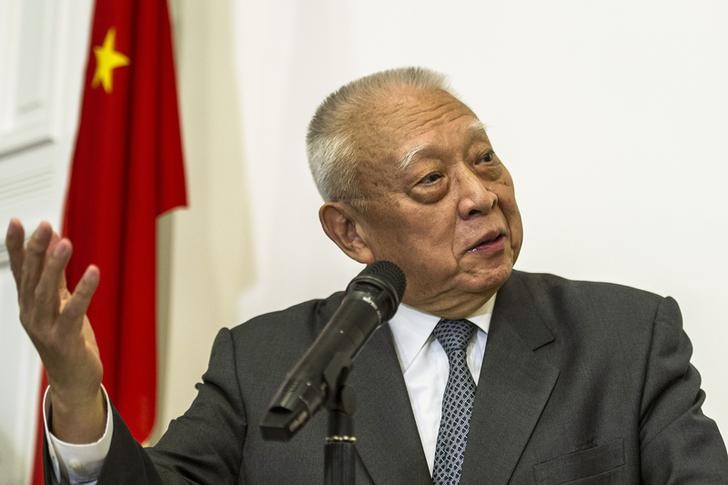By James Pomfret
HONG KONG (Reuters) - Former Hong Kong leader Tung Chee-hwa said on Tuesday tough Chinese national security laws could be introduced in Hong Kong, stoking fears China may tighten control in its southern financial hub after last year's pro-democracy street protests.
Pro-Beijing politicians and left-leaning newspapers have called for China's draconian national security laws - used by Communist Party authorities to crush dissent - to be implemented in Hong Kong after last year's civil disobedience campaign.
Tens of thousands of student-led protesters camped out on major roads for over two months in a push for direct elections without Chinese curbs.
Hong Kong, a former British colony, returned to Chinese rule in 1997 and enjoys wide-ranging freedoms under a so-called "one country two systems" arrangement. Beijing has allowed elections for choosing the next chief executive, but wants to screen candidates first.
Chinese leaders, including President Xi Jinping, were openly mocked in banners and posters during the street campaign for trampling on the city's freedoms.
"In the Basic Law, the central government has the power to take Chinese laws and introduce them into Hong Kong," Tung told reporters, referring to the city's mini-constitution, when asked whether China's national security laws should be implemented.
Some legal scholars have said such a move would breach Hong Kong's autonomy.
Tung, the first Hong Kong chief executive after the 1997 handover, has close ties to Xi and is technically a national leader as deputy chairman of the country's highest consultative body, the Chinese People's Political Consultative Conference.
Tung tried to push through so-called "Article 23" national security laws in 2003, but the proposal, which many saw as a grave threat to the city's autonomy, provoked a mass protest and the laws were shelved.
Article 23 of the Basic Law states that Hong Kong should enact its own laws to "prohibit any acts of treason, secession, sedition, subversion" against the Chinese government.
Tung reiterated Hong Kong had a responsibility eventually to enact Article 23 laws to protect the interests of a rising China.
"This is not a question of time, the (Article 23) laws will be enacted one day," he told reporters.
On Sunday, senior Hong Kong and mainland officials including incumbent Hong Kong leader Leung Chun-ying and his wife, inaugurated a new "army cadet group" modelled on China's People's Liberation Army (PLA).
The official China Daily newspaper showed photographs of young cadets marching at a PLA army base in Hong Kong, wearing green PLA-style uniforms.

Democratic lawmakers slammed the move as a sign of a Beijing's hardline, post-protest campaign of creeping control to counter the youth-led democracy movement by "brainwashing' students through military training.